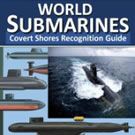France and the UK tend to face the same threats in the future. Therefore, this program called Future Cruise and Anti-Ship Weapon (FC/ASW) has been created, in order to improve, for both countries, the heavy anti-ship capacity (ocean-going confrontations) and strike capacity permitting to attempt opponent’s anti-aircraft defenses.
 SCALP missile at Dimdex 2018 in Qatar (Picture source : Navy Recognition)
SCALP missile at Dimdex 2018 in Qatar (Picture source : Navy Recognition)
This joint program will extend an already existing bilateral cooperation regarding missiles improvement (program SCALP/Storm Shadow) developed since 1990, yet reinforced with Lancaster House agreements in 2010. It will also permit the increasing of the existing cooperation between these two governments regarding defense and help them spare a lot of money.
To improve their existing missile capacity, these two allied countries are to consider an optimization of the range (up to 1.000km), the velocity (up to Mach 7), the stealth, the manoeuvrability (improved terminal guiding) and the connectivity of the new missiles. These missiles will have to be able to replace Exocet and Harpoon anti-ship missiles just as well as SCALP/Storm Shadow cruise missiles.
In addition to this project, both governments have announced a reinforcement of their cooperation through the creation of a joint expeditionary force (JEF), the development of an integrated naval air force by 2020, the joint development of anti-mine equipment and systems, the development of equipment and technologies for the next generation of nuclear submarines, the reinforcement of the antiterrorist joint fight and the joint work done on the next generation of surveillance UAVs.
All these bilateral projects aim to reduce the gap between France and the UK on the one hand, and Russia and China on the other hand, in the new arms race in which they all are involved. In ten years, China has increased of more than four times its budget allowed to defense, meanwhile Russia has reached 4% of its GDP regarding defense expenses. France and the UK must indeed maintain protection on their economic and strategic interests (maintaining access to different strategic maritime and aerial areas). Therefore, they must hedge themselves against a high intensity confrontation, which may occur due to the increasing number of incidents that may happen due to the violation of Anti-Access/Area-Denial (A2/AD) protected areas.










